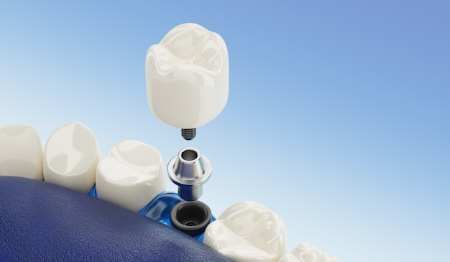How are dental implants done in Turkey?
An implant is a prosthetic device that replaces a missing permanent tooth in the jaw with a titanium screwed tooth that mimics the original tooth root. The patient no longer has to put up with the unsightly appearance brought on by tooth loss because of the implanted teeth. Patients receive teeth that operate far better than teeth with conventional prosthetic procedures thanks to the support of the artificial tooth root.
Even those who have lost all of their teeth can benefit from implant treatment. Patients restore their natural smile, oral functions, and lost teeth with the use of fixed and removable prosthesis fastened to implants. The patient's only option if they are missing teeth is to have an implant tooth. Dental implants are durable and healthful.
- When a patient applies to our dental clinic, our doctor will do an initial assessment to see if the patient has dental implant mania.
- An X-ray film of the patient's jawbone is taken before to the procedure. It is possible to measure the jawbone with clarity using this film, and it can be ascertained if the jaw still has any bone tissue from the prior tooth extraction. The permanent teeth of the patient are measured.
- Local anaesthetic is administered to the patient before to dental implant therapy in order to minimise discomfort. On occasion, mild sedation may also be employed.
- There are two methods for inserting a dental implant. One of these involves inserting the dental implant into the mandible. A temporary prosthetic tooth is affixed to the patient while the jawbone and implant fuse together, keeping the patient from going toothless.
As is anticipated during the fusion of the jawbone and the implant, the dental implant is inserted into the jawbone. Permanent teeth or dentures are affixed at the conclusion of this time. Under the second approach, the patient doesn't get any teeth during the healing process.
- It takes three months for implants placed in the lower jaw and six months for implants made in the upper jaw for the jawbone to fuse with the implant. After the healing and fusing processes are complete, permanent dentures are attached.
- Following dental implant treatment, patients are able to laugh, chat, and consume any meal they like with ease. Following dental implant treatment, our patients report feeling happier and more confident.

Who is the ideal candidate for dental implants?
- When an individual reaches the age of 18, their facial and jaw growth is complete,
- Missing one or more teeth,
- Possessing enough bone tissue and width in the jawbone to support implant treatment,
- Good overall health that does not impede the placement of dental implants,
- Having healthy, optimal gums,
- Not suffering from any illness that would impede the mending of bone tissue following its insertion into the mandible,
- No illness of bone resorption,
- Whoever finds it difficult to adjust to these teeth, does not want to wear a full denture, or has nausea when using these prostheses,
- Individuals without diabetes or those with diabetes whose condition is under control,
- A candidate for implant treatment is anyone who can behave steadily throughout the drawn-out course of treatment, who won't stray from his controls or our dentists' suggestions, and who will take proper care of his mouth hygiene.
Who is not suitable for dental implant?
- People who have high blood pressure-hypertensive persons can suffer from heart failure, seldom paralysis, and profuse bleeding during periods of severe pain and stress. Before beginning treatment, people with high blood pressure in particular should have their blood pressure checked, and if something seems off, they should see a doctor.
- Those who have osteoporosis; and those who experience issues with blood coagulation, patients on blood thinners should speak with their physician prior to receiving implant treatment and should not use blood thinners for the duration of the physician's recommended use.
- Individuals who have been on cortisone treatment for a long period or who are still on it,
- People with diabetes: Because wounded tissues recover slowly in these people, there is an increased risk of infection during implant treatment. Diabetes patients must first get their condition under control and have their doctors' approval before they can undergo dental implants. Heart disease patients (permission from their physicians is required for implant treatment).
- People who smoke: Smoking cigarettes increases the quantity of dangerous bacteria in the mouth. As a result, there is an increased chance of problems following implant treatment. Smoking hinders a patient's ability to heal. Smokers want implant treatment 15 days prior and 1 month subsequent for this reason. They must refrain from smoking during implant treatment.
- Individuals suffering from unmanaged periodontal disease, heavy alcohol users, people still undergoing cancer treatment,
- Individuals who have recently undergone chemotherapy; those who have undergone radiation therapy to the jaw and neck.
- For more detailed information, please contact us or visit our dental clinic.
